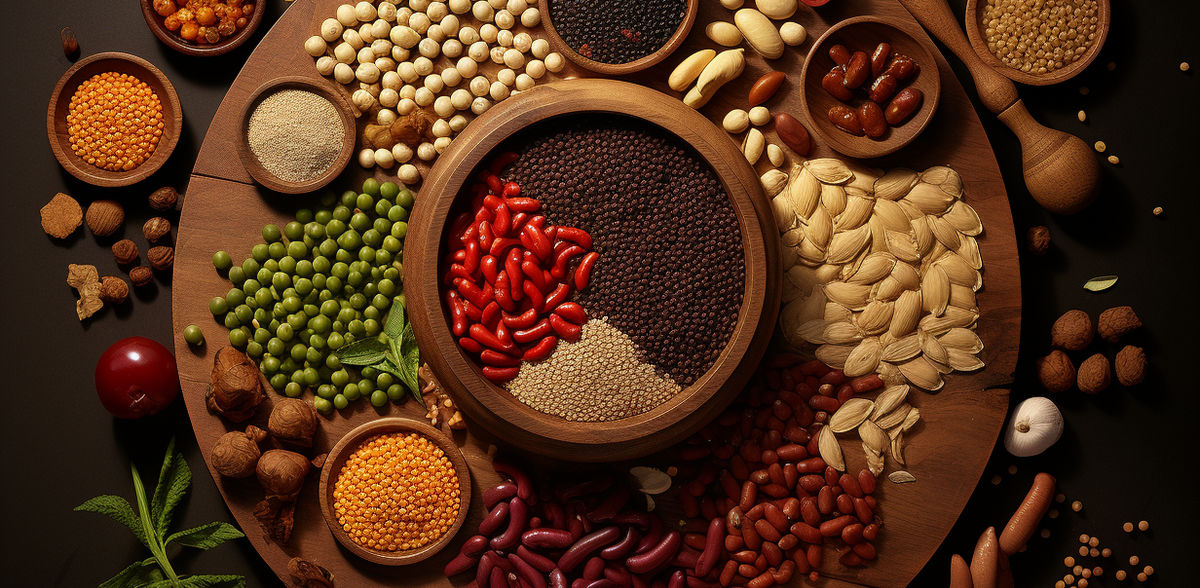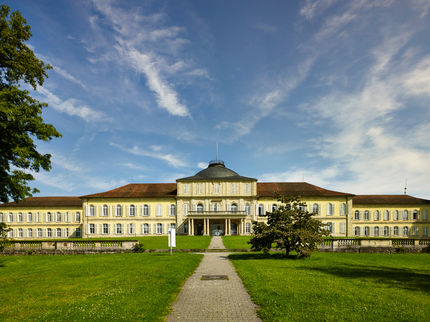Legumes with a difference
Münster University of Applied Sciences offers workshop series on sustainable protein sources for innovation space "NewFoodSystems
Advertisement
Waffles made from lentils, bread made from sweet lupins, croquettes made from field beans, mousse au chocolat with aquafaba and much more were on offer to try at the two-day workshop "Legumes done differently" at food lab muenster. "The lupine bread is simply fantastic," said Burkhard Voß. The farmer from Rinkerode, who has been growing and processing sweet lupins himself for some time, was one of the participants* in the workshop. Representatives from the food service and craft industries were invited to learn about pulses as a sustainable alternative source of protein and to experiment with pulses themselves in the form of flours, concentrates and isolates in the laboratory kitchen at Münster University of Applied Sciences.
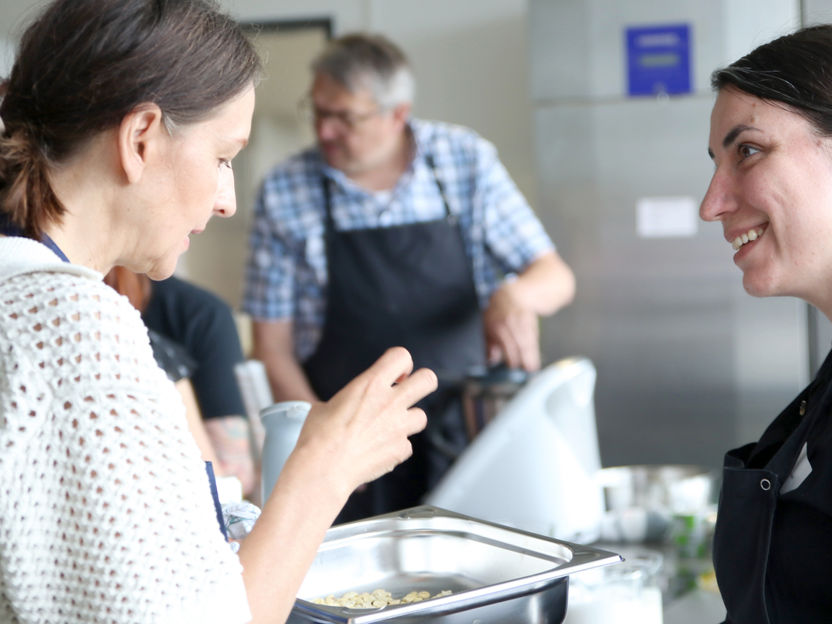
Oecotrophology student Alena Busalski (right) and others were available to answer questions about pulses from workshop participants at food lab muenster.
FH Münster/Dzemila Muratovic
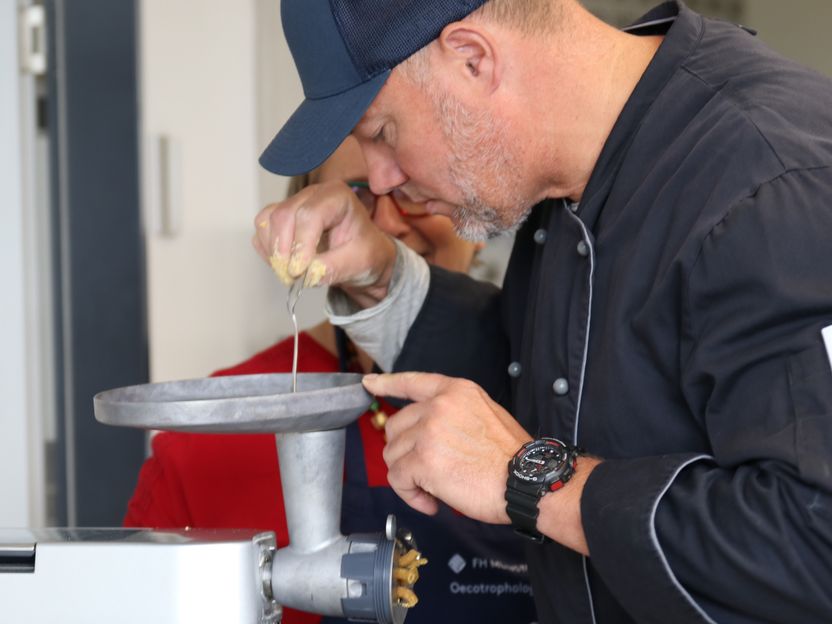
From theory to practice: This participant in the workshop "Legumes done differently" made noodles from the field bean.
FH Münster/Dzemila Muratovic
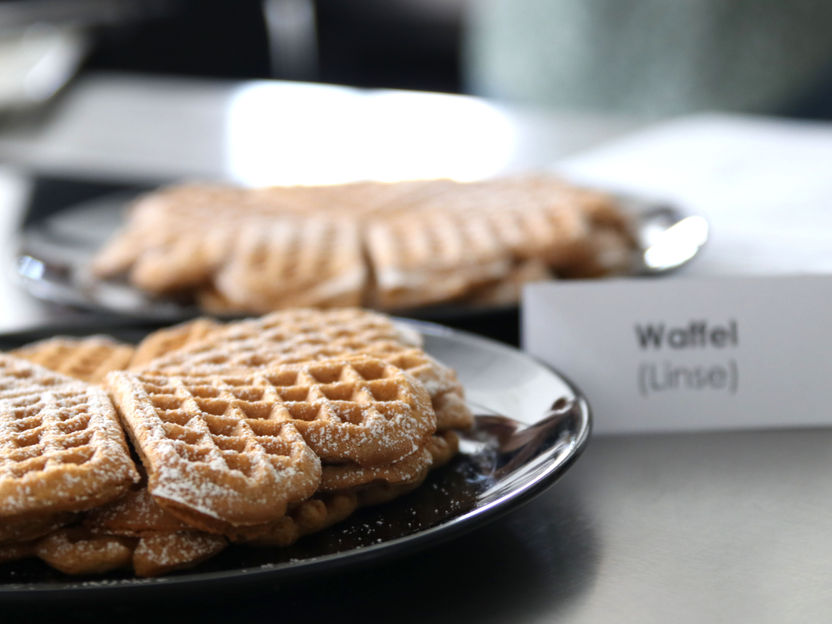
Waffles made from lentils and much more were on offer at the food lab muenster at the workshop "Pulses done differently".
FH Münster/Dzemila Muratovic
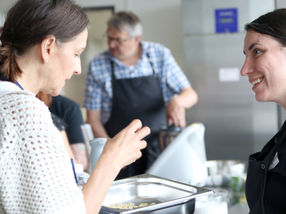
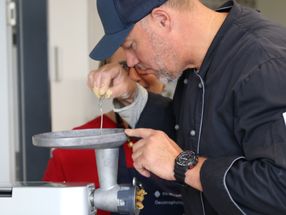

The workshop was organized by the innovation space "NewFoodSystems", which is coordinated by the Max Rubner Institute in cooperation with the University of Bonn. The NewFoodSystems network is working on new approaches for the nutrition of the future. It brings together actors from nutrition research and the food industry to jointly develop innovations. As one of four innovation spaces in the "Bioeconomy Innovation Spaces" program, NewFoodSystems is funded by the German Federal Ministry of Education and Research.
In his introduction to the workshop, Prof. Dr. Guido Ritter of the UAS Department of Oecotrophology - Facility Management explained the scientific background to pulses as a significant source of vegetable protein. "They are simply part of a healthy diet." Among other things, Ritter spoke of the Planetary Health Diet, a nutritional strategy that international scientists* have developed. It takes into account human and planetary health alike - as the world's population grows. For pulses, the Planetary Health Diet envisages a doubling of consumption.
But how can this be translated into practice? Besides the familiar dishes like lentil soup, how else can pulses be used as a whole ingredient for flavor? How do pulses change when they have been processed into flour, concentrate, isolate or extrudate? Depending on the processing, protein content and properties vary, and these affect gelation, water binding or foaming during preparation, for example. In addition, vegetable proteins are absorbed differently by the body than animal proteins. All these were topics of the workshop.
Food technologist Albrecht Fleischer and students of oecotrophology accompanied the participants in their experiments. "This novel workshop format offers the opportunity to bring research results directly into application and to learn more about the challenges of dealing with sustainable food in practice," explains Ritter. This, he says, provides a unique platform for professional exchange across different industries for all participants.
Another workshop in the "Zukunft is(s)t jetzt" series is expected to take place at the university in November.
Note: This article has been translated using a computer system without human intervention. LUMITOS offers these automatic translations to present a wider range of current news. Since this article has been translated with automatic translation, it is possible that it contains errors in vocabulary, syntax or grammar. The original article in German can be found here.
